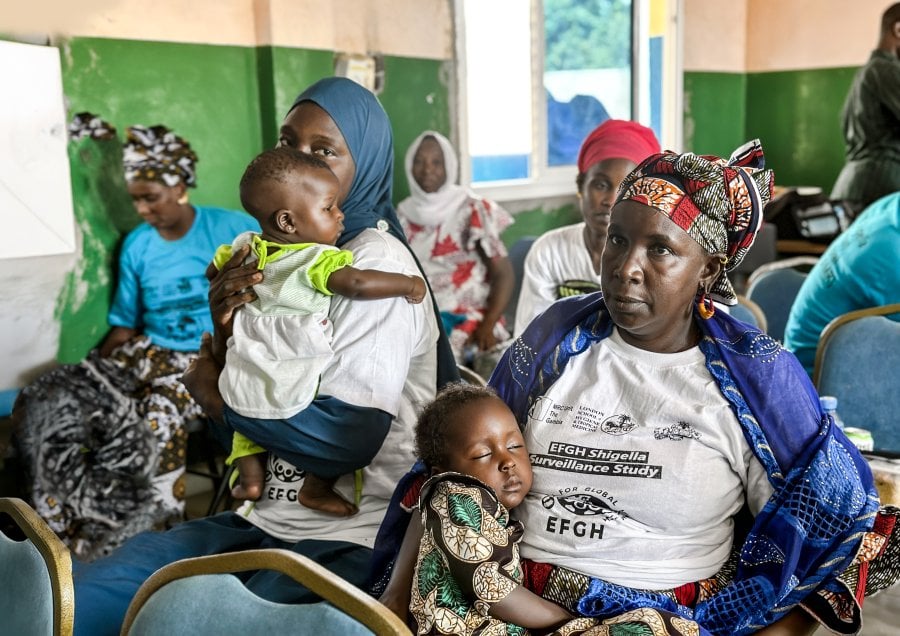
A woman sitting in a crowd, carrying a child.
Launched in 2022, the study investigated the burden of Shigella-related diarrhea – a major contributor to childhood illness and death in low-resource settings. Its findings raise concerns about current treatment and control efforts.
The study was conducted in Basse and led by MRCG researchers in collaboration with the Ministry of Health. Community health centers, district hospitals, and local authorities played an active role, helping gather data from patients, caregivers, and healthcare workers.
Findings shared during a dissemination meeting held on April 15, 2025, revealed a high prevalence of Shigella infections among children aged 6 to 35 months, along with increasing resistance to commonly used antibiotics. These results emphasize an urgent need to revise treatment guidelines, invest in diagnostics, and fast-track vaccine development.
The findings carry far-reaching implications for public health – both locally and globally. In The Gambia, they will support the Ministry of Health in refining diarrheal disease management strategies. Globally, they add to the growing body of evidence on antimicrobial resistance in vulnerable populations.
At the event, Samba Bah, Deputy Director of the Regional Health Directorate, reaffirmed the Ministry’s commitment to supporting the Unit’s work.
“This study reinforces the value of strong collaboration between MRCG and the Ministry of Health. The findings provide critical data that will guide our response strategies. With this evidence in hand, the Regional Health Directorate reaffirms its commitment to supporting MRCG initiatives aimed at improving public health in the Upper River Region. Together, we can shape informed interventions and improve health outcomes for our communities.”
“These results highlight the urgent need to address antibiotic resistance and improve sanitation and hygiene,” said Dr. Jahangir Hossain, Principal Investigator of the study. “We will be engaging with the Ministry of Health, WHO, GAVI, and other key stakeholders to discuss prioritising the development and introduction of a Shigella vaccine in The Gambia. We are deeply grateful to the communities, participants, and health workers who made this research possible.”
Moving forward, the EFGH team will continue engaging with local communities through village-level meetings, ensuring that participants, elders, and local leaders are informed about the study findings and their implications, and are equipped to support prevention and mitigation efforts.
If you enjoyed this article and would like to build a career in global health, we offer a range of MSc programmes covering health and data, infectious and tropical diseases, population health, and public health and policy.
Available on campus or online, including flexible study that works around your work and home life, be part of a global community at the UK's no.1 public health university.
